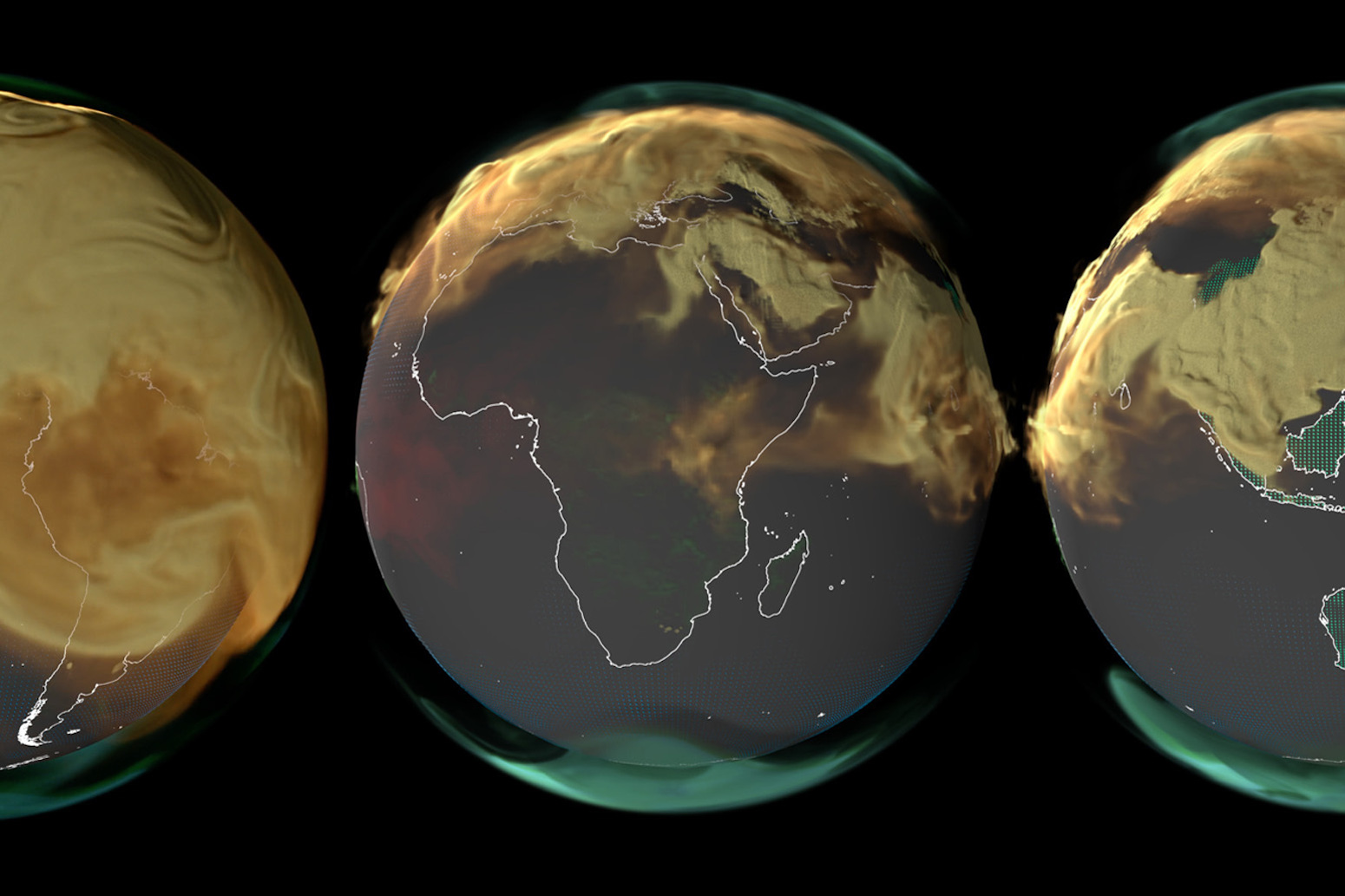
An Eye on CO2 from Space Could Soon Shut Why This Matters
GK & Current Affairs for CLAT | CLAT Current Affairs 2026
Powered by CLAT Gurukul – Best online coaching for CLAT
Introduction
Climate change has emerged as the defining global challenge of the 21st century. Rising greenhouse gas emissions, particularly carbon dioxide (CO2), are pushing the Earth toward unprecedented warming, leading to more frequent droughts, rising sea levels, melting glaciers, and extreme weather events. One of the most critical tools in monitoring CO2 emissions and understanding their impact has been a series of specialized NASA satellites called the Orbiting Carbon Observatories (OCO).
However, recent reports suggest that the Trump administration has asked NASA to prepare to shut down OCO-2 and OCO-3, the two primary satellites monitoring atmospheric CO2. This decision has sparked widespread concern among scientists, environmentalists, and policymakers worldwide.
For aspirants preparing for CLAT Current Affairs 2026, this issue is of immense importance as it connects climate change law, international environmental agreements, U.S. policy shifts, and the role of space technology in global governance. At CLAT Gurukul, the best online coaching for CLAT, we emphasize analyzing such issues in depth, as they demonstrate the nexus between law, science, and policy — essential for cracking the Current Affairs 2026 section.
Why in News?
- The Trump administration reportedly directed NASA to shut down OCO-2 and OCO-3 satellites.
- These satellites are the only tools currently providing global-scale monitoring of atmospheric CO2 from space.
- NASA officials claimed the decision was based on “budget priorities,” but many experts argue it undermines climate science.
- Without these satellites, our ability to monitor emissions, assess compliance with climate agreements, and predict future climate impacts will be severely weakened.
Point-wise Summary of the Article
- About the OCO Satellites
- The Orbiting Carbon Observatory (OCO) program was designed to measure atmospheric CO2 concentrations.
- OCO-1 (2009) failed due to a launch vehicle malfunction.
- OCO-2 (2014): Launched into sun-synchronous polar orbit, providing consistent data at the same time of day.
- OCO-3 (2019): Mounted on the International Space Station (ISS), capturing data every 90 minutes at different times of day.
- Importance of OCO Missions
- Provided a global view of CO2 accumulation in the atmosphere.
- Helped map sources (“emitters”) and sinks (forests, oceans).
- Revolutionized knowledge of how boreal forests, tropical rainforests, and natural carbon sinks behave.
- Crucial for tracking compliance with international climate goals (Paris Agreement 2015).
- Key Scientific Discoveries
- Tropical forests: Absorb large quantities of CO2, but vulnerability to deforestation and drought threatens this function.
- Boreal forests: Found to play a major role in CO2 absorption — an unexpected discovery.
- Natural carbon sinks: Could shift from being absorbers to emitters due to climate stress.
- Helped farmers by providing CO2 and crop condition data.
- Costs and Benefits
- OCO program cost around $750 million to design, build, and operate.
- Annual cost of maintaining the satellites is relatively small compared to the value of the data produced.
- Data are widely used by U.S. Department of Agriculture and global researchers.
- The Shutdown Decision
- NASA has been asked to terminate OCO missions citing “budgetary priorities.”
- Critics argue it will harm climate science and global monitoring.
- Data from OCO satellites are indispensable for international research and environmental law compliance.
Why the OCO Missions Matter Globally
- Climate Governance
- The Paris Agreement requires accurate monitoring of CO2 emissions.
- Without OCO data, accountability of countries in meeting climate pledges is at risk.
- Scientific Value
- Enabled groundbreaking discoveries in forest ecology, atmospheric studies, and global warming impacts.
- Provided precise emission maps, allowing targeted climate action.
- Policy Support
- Data used by farmers, policymakers, and even corporations to track CO2 impact on agriculture and drought.
- Global Cooperation
- OCO satellites represent the kind of international public good essential for combating climate change.
- Their shutdown would weaken global cooperation in monitoring emissions.
Notes on Peculiar Terms
- Carbon Dioxide (CO2) – A major greenhouse gas responsible for global warming, produced by burning fossil fuels.
- Orbiting Carbon Observatory (OCO) – NASA’s satellites designed to monitor atmospheric CO2 from space.
- Sun-synchronous Orbit – A polar orbit where a satellite passes over the same part of Earth at the same local solar time daily.
- International Space Station (ISS) – A space station orbiting Earth, hosting scientific experiments including OCO-3.
- Carbon Sinks – Natural systems (forests, oceans) that absorb more CO2 than they emit.
- Paris Agreement (2015) – Landmark international treaty to limit global warming to below 2°C.
- Greenhouse Effect – Trapping of heat in Earth’s atmosphere by gases like CO2, CH4, causing warming.
Legal and Environmental Implications
- International Law
- Data from OCO satellites supports UNFCCC and Paris Agreement compliance mechanisms.
- Helps nations verify and compare emission reduction claims.
- Constitutional Law (India)
- Article 21: Right to life includes the right to a healthy environment.
- Article 48A: Directive Principles obligate the state to protect the environment.
- India relies on global data like OCO’s to strengthen domestic climate policies.
- Environmental Justice
- Vulnerable countries (e.g., small island nations) depend on accurate data for legal claims in climate negotiations.
- Satellite shutdown would disproportionately hurt these nations.
- Technological Dependence
- Shows how global climate policy depends on space-based observation systems.
- Raises questions of equity: should climate monitoring depend on decisions of a single country’s government?
Conclusion
The possible shutdown of NASA’s OCO-2 and OCO-3 satellites highlights the fragile intersection of politics, science, and climate change governance. These satellites have been crucial in revolutionizing our understanding of atmospheric CO2 and in supporting global climate agreements like the Paris Accord. Their termination would represent a major setback in the fight against climate change.
For CLAT Current Affairs 2026, this case study demonstrates how international environmental law, U.S. domestic policy, and scientific tools like satellites are interlinked. At CLAT Gurukul, the best online coaching for CLAT, we ensure aspirants not only understand such current affairs but also learn to critically analyze their legal, scientific, and policy dimensions. Students relying on online coaching for CLAT must recognize that climate change issues are not only scientific but also legal challenges that demand global cooperation.
This Blog is Powered by CLAT Gurukul — India’s Leading Law Entrance Prep Platform
At CLAT Gurukul, we believe in empowering future legal minds with the right blend of knowledge, strategy, and mentorship. This blog is a reflection of our commitment to quality content that not only helps aspirants stay updated but also sharpens their conceptual clarity.
Why CLAT Gurukul?
- Personalized Mentorship by Top Legal Educators
- Comprehensive Study Materials & Legal Updates
- Daily Practice Sets, Mocks & Performance Tracking
- Result-Oriented Strategy for CLAT, AILET, and CUET
Whether you’re reading this article to deepen your understanding or to stay ahead in your exam prep — you’re already one step closer with CLAT Gurukul by your side.
Join thousands of successful aspirants who trusted CLAT Gurukul and cracked India’s top law entrance exams.
Visit https://www.youtube.com/@CLATGurukul/shorts to learn more or speak to our experts now!
Note from CLAT Gurukul
At CLAT Gurukul, we are committed to providing free CLAT study material, including CLAT current affairs, legal reasoning practice sets, general knowledge updates, logical reasoning questions, English comprehension exercises, and more — all curated by top mentors.
Our blog section is regularly updated with high-quality CLAT content tailored to match the evolving pattern of the CLAT UG exam. Whether you’re looking for CLAT 2026 current affairs, CLAT legal reasoning passages, or mock practice sets, we have you covered.
We believe in open-access learning and will continue to publish free CLAT preparation resources to help serious aspirants succeed.
Explore more free content under categories like:
Best online coaching for CLAT, CLAT current affairs, CLAT GK updates, CLAT legal updates, CLAT logical reasoning, and CLAT English preparation.
For structured learning, daily mocks, and expert mentorship, visit https://www.youtube.com/@CLATGurukul/shorts — the Best CLAT Coaching in Patna and India’s most trusted platform for CLAT online coaching.




